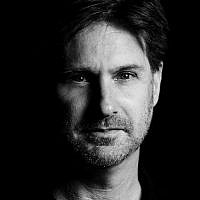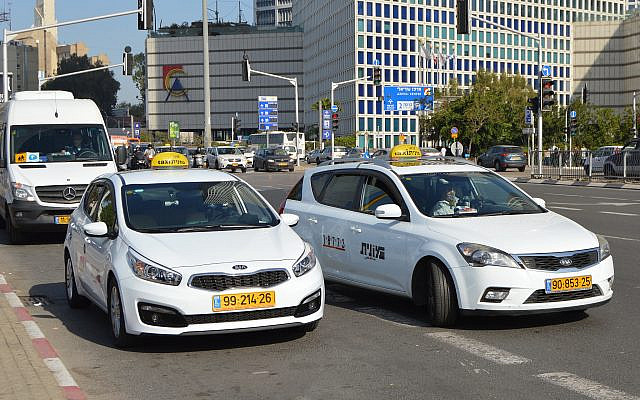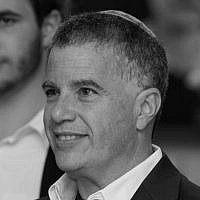Faith in a Taxi
Taxi drivers in the two cities where I have lived most in my adult life used to be legendary. In New York, you had the cabbie with the hundreds of stuffed animals front seat to back, seatbelt-free early-morning marauders flying from airport to tunnel and bridge to home in thirty minutes or less, and every version of wisecracking, street smart know-it-all hacks right out of the TV show Taxi who had seen it all from behind the wheel of their yellow cabs.
For decades in Jerusalem, if you wanted to know what was what, you could go to the shuk — Machane Yehuda for the West Side shakedown or the Muslim Quarter of the Old City for the lowdown on the East. Or, from wherever you were or wanted to go, you got in one of those big white Mercedes Benz four-doors purchased from the German government at cost to get the skinny on what made the Holy City tick.
Uber and Lyft busted up yellow cab culture in New York City and Gett Taxi did the same in Israel. (Though the cabbies in Israel are not going down without a fight. When Gett recently won the tender from the Israel Airports Authority to take over an exclusive contract for private cabs at Ben Gurion from Hadar, which had been gently gauging tourists for a generation, the old school drivers said “No” to the new kids on the block, and not a single cab could be found at the departure dock for a week.)
When it comes to cabbing it these days, as with most things in our age — shopping, schooling, entertainment, and even religion — tech has made things smoother, flatter, somewhat sterile, and a lot more predictable.
Technology underlaid everything I needed to do in preparation for this week’s trip to Cleveland, Austin, and Miami. I booked the flights and cars and hotels on my phone, set up the meetings using WhatsApp, iMessage, and Calendly, and went over music for the band in Austin (and a future gig in Seattle) by Zoom. Then as Shushan Purim ended, I ordered a cab to the airport from Gett, which is precisely when the Old World came to wreak havoc on my planning and faith as quickly I could have yelled “Taxi!”
My first attempt to book a ride looked solid until I watched my Gett-assigned driver, who was just one minute away at the moment of the request for service, extend the wait time to four minutes, then five, then seven. And then I watched as he simply drove across my screen in the opposite direction of my home address and didn’t answer my texts. I cancelled and tried again.
The next guy picked me up in a few minutes just as the app had promised, but as we begin to work backstreets toward the highway, he told me that he didn’t trust Waze. “Trust the Holy One,” he said in Hebrew, “and we’ll get there safe and sound.” I reluctantly agreed, both because I have a soft spot for faith where technology is involved as well as the fact that he seemed like he knew things I didn’t. We continued to drive for a few minutes until it became clear that we were about to reprise the final scene from my favorite Stars Wars film of my youth, Luke Skywalker streaming toward his fate with the radar off and mission control silenced.
The Force was not with us, at least that’s the way it felt at the time. I saw a line of hundreds of red lights jamming the main thoroughfares out of Jerusalem. Nearly every car carried a believer – haredim, hardalnikim, and dosim from across the spectrum. They had all wanted an extra day of Purim, I realized, and everyone was now driving home at the end of Shushan Purim (celebrated only in Jerusalem, a walled city from the time of the Book of Esther while the rest of the Jewish world celebrates on the main date.) The airport had never seemed so far away.
Bumper to bumper, I sat with a driver who trusted in Hashem as we crawled forward with a phalanx of hardcore believers. I was sure I would miss my flight. In the end, it was very tight, but I made it. The driver and I arrived more than an hour after I had planned. We exchanged blessings with no small amount of Middle Eastern drama, thanking the Holy One for the journey, and exchanged blessings for good health for our families and all of Am Yisrael and for life itself. Then I darted through security and ran to the gate.
I’m writing from Austin, Texas, four flights later, where I’m delighted to be teaching at Congregation Agudas Achim on Shabbat. But still, thoughts about the faith of my driver, his pushback on technology, and the ways that religion literally bottlenecks Jerusalem time and time again have stayed with me.
I will never know if the driver’s faith in Hashem was what saved me from missing a flight I couldn’t miss, or if I should have breathed deep into my own faith for close to two hours in a cab rather than doom scrolling on my phone in order to manage my anxiety. As happens almost daily, I was reminded that night that Jerusalem is a city whose every pathway or thoroughfare opens or closes in some manner due to faith.
I have written here often in recent years and wondered to myself for decades more if, on balance, the faith I cultivate – infused with passion for both pluralism and humanism as well as old school tradition – is strong enough to influence a world in which the most extreme versions of religion seem to dominate or coopt all of our destinies, believers and non-believers alike. Can my post-modern faith get me where I need to go in a world where the faith of old-time religion defines the vast majority of the gatekeepers of faith? Having barely gotten to where I needed to be this week, I’m still not sure.




